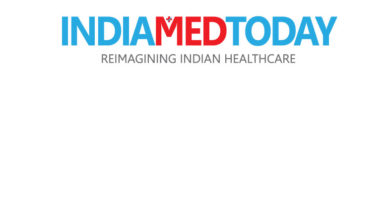SafePoint India applauds Bihar Govt. for Adoption of ‘AD Syringes for Patient Safety’

Patna,11th Sep, 2019 : Dr. (Col) HS Ratti, Public Health expert, epidemiologist and Project Advisor to SafePoint India has applauded the Bihar Government for adopting Auto-Disable Syringes in all Medical colleges & PSEs in all the districts of Bihar to contribute towards promotion of safe injection practices in the country.
Govts of Punjab and Andhra Pradesh have already adopted this as a state policy. Bihar now joins and takes the lead to encourage the use of Auto-Disable Syringes in state of Bihar.
Dr. HS Ratti, said “I congratulate Bihar Govt. for implementing this important initiative and we are hopeful that Bihar Govt. will soon switch to auto disable syringes in all private sectors as well. If need be, as a value addition, SafePoint India is ready to help Govt. of Bihar by offering to conduct training programs for all the healthcare workers of Bihar on correct and best Injection practices to avoid hospital borne infections.”
SafePoint India urges the Principal Secretary Healthare, Shri. Sanjay Kumar; Dr. NK Gupta, Bihar State Blood, Safety Nodal Officer and Shri. Sanjay Singh, Managing Director, BMSICL to kindly review and implement 100% usage of AD syringes in private sector as a State Govt. policy.
INCLEN study estimated that India consumes over 4 Billion Syringes per year of which nearly 60% as unsafe and 1/3 being reused. Addressing the unsafe injection practices is an important public health agenda, especially in low and middle income countries. WHO has made it a one of the main goals of it Patient Safety Program
With advancement in medical technology the patient safety profile have also changed. While modern technology brings advanced safety it also brings new complexity. Govt. of Bihar endeavours to find technological solution to progressively and positively impact the safety of patients and care providers.
“We urge the Central government and other progressive States who are still contemplating on the adoption of AD syringes to follow the lead taken by Bihar, AP & Punjab in Healthcare System Strengthening and lowering burden of infections by breaking the cycle of cross infection – let there be no more Unnao, no more Modasa type tragedies in India. We urge West Bengal & Odisha Govt. who have partially adopted the use of Auto-Disable Syringes to adopt 100% use of AD syringes ”, added Dr. Ratti
“We are hopeful that Govt of Bihar launching ‘AD Syringes for Patient Safety’ is a commitment towards elimination of HIV and Hepatitis Epidemic.” added Dr. Ratti
Global Campaign for use of Safe Injection Practice came early in 2015 when WHO Director General Margaret Chen flagged off the largest Global initiative since Polio Eradication and Hand Wash Campaign called “Global Health Initiative on Injection Safety” and chose India, Egypt and Uganda as the focus Countries to spearhead the Campaign. WHO had stated that for every dollar invested in Injections Safety, the RoI ( Returns on Investment) was 14 dollars. WHO issued advisory to all Member States and Institutions to go for mandatory use of SMART Auto-Disable Safety engineered Syringes in Healthcare System by 2020 and urged all Donor Institutions to supply only AD / RUP / SIP Syringes henceforth in their Campaigns depending upon local manufacturing capacity and availability and affordability.
Many countries including USA, EU, Canada and Japan have already adopted Safety Engineered Syringes (SES) said Dr HS Ratti, an Army trained Public Health expert epidemiologist and Advisor to SafePoint India..
“The poor hygiene in hospitals acts as amplifier for disease as patient gets admitted for a specific treatment but ends up getting treated for a hospital acquired infection. The reuse of medical syringes continues to be a matter of serious concern as it poses grave health risks both to the patient as well as to medical professionals in light of growing AMR (Anti Microbial Resistance) and also acts as a barrier to the Government’s resolve of eliminating these diseases by 2030.”said Dr HS Ratti

